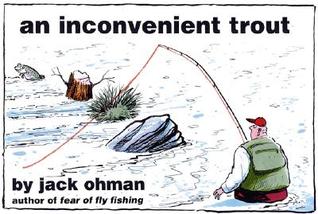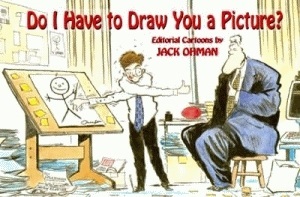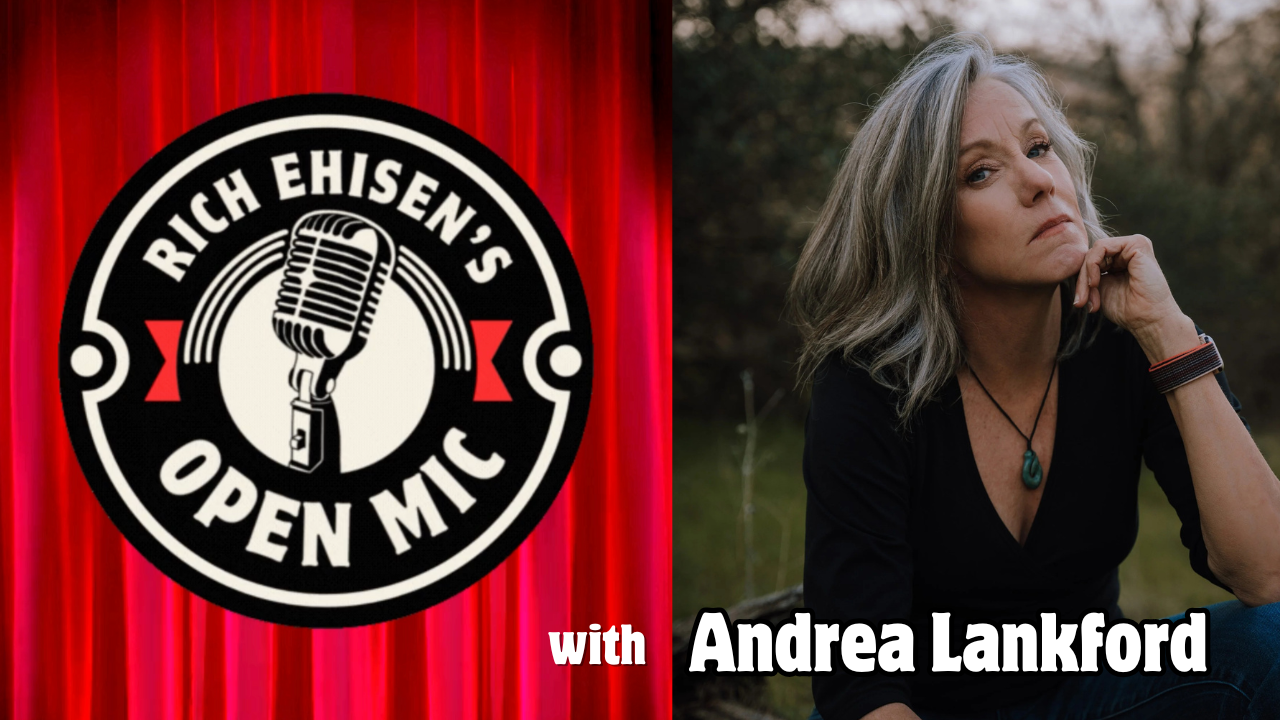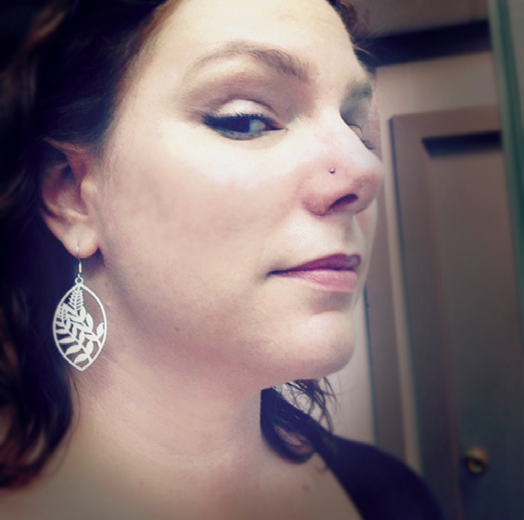 When we last sat down with Sacramento Bee editorial cartoonist Jack Ohman In November 2015, he had won every major award a journalist could win except for the Pulitzer Prize. Now he’s even won that, taking home the honor in April of last year. A successful author as well as a cartoonist, we sat down with him again recently to talk about the impact the award has had on his work and his other writing.
When we last sat down with Sacramento Bee editorial cartoonist Jack Ohman In November 2015, he had won every major award a journalist could win except for the Pulitzer Prize. Now he’s even won that, taking home the honor in April of last year. A successful author as well as a cartoonist, we sat down with him again recently to talk about the impact the award has had on his work and his other writing.
Open Mic: You are now a Pulitzer Prize winner. What, if anything, has changed in your world since joining that esteemed club?
Ohman: Not that much day to day. There are so many great journalists who haven’t won the Pulitzer Prize. There are great authors who haven’t won the Pulitzer Prize. Lots of great everybody in all categories who for some reason have not won the Pulitzer prize, and then it happens to you and you realize that how lucky you are because I think a lot of it is just timing. But once you get into the club then the world looks like a very different place in the sense that there are only 71 people who have won the Pulitzer Prize in my category in the history of the award. That’s a 100 years. There have been a lot of political cartoonists and you’re like why me, right? That’s not a question I have to ask myself anymore. I realized a couple of months ago that John F Kennedy and I now have one thing in common, and so it’s a very touching, emotional experience.
Open Mic: Does it change your perspective on how you approach your work?
Ohman: I have always been very careful about my work, but when you win that award you do get up every morning with that in the back of your mind. You have won the Pulitzer Prize and you really have to rise to the occasion every day. I’m not a phone-it-in kind of person anyway. I mean most creative people, writers and artists are quite frankly obsessive compulsive about their work. So it’s not like ‘oh well now I’ve won the Pulitzer Prize I can phone it in now.’ I have an even stronger commitment to my work if that’s possible in the sense that I’m even more conscious about the smaller things in my work.
Open Mic: No diva behavior?
Ohman: I’m mindful of it but you can’t walk around and think ‘Oh my God I’m the Pulitzer Prize winner’ every moment of life. I go golfing and one of my friends will say ‘that wasn’t a Pulitzer Prize-winning putt.’ A guy came up to me on the fourth hole at Land Park [Golf Course] and said “Mr. Ohman, I just wanted to congratulate you on winning the Nobel Prize.” And I said well actually it was the Pulitzer but thank you.”
Open Mic: Has it broadened your ambitions? I know you have a new book coming out.
Ohman: Yes. It’s on the 1968 Oregon Democratic primary.
 Open Mic: That’s far different than the fly fishing topics that you’ve covered. So that’s why I wonder, does winning the Pulitzer broaden the ambitions of other projects you want to do?
Open Mic: That’s far different than the fly fishing topics that you’ve covered. So that’s why I wonder, does winning the Pulitzer broaden the ambitions of other projects you want to do?
Ohman: Kind of, although I haven’t really landed on a particular project. I’ve actually been doing a lot of the spadework on this thing for 18 or 19 years. But does it make me feel like there’s other things that I would like to try? Yes, but I’m also working really hard at the Bee and making sure that my work there is number one. Everything I do is within the context of my primary job. I don’t want to get distracted by some sort of other ancillary ambition or project that’s really time consuming. But yeah, I would like to do more writing at some point.
Open Mic: Anything in particular?
Ohman: I think I’m going to have some opportunities that I probably wouldn’t have had otherwise, but publishing is really tough. I got an inquiry from a publisher after I won last year who said to give him some book ideas. I gave him seven book ideas. They were very interested in this project I had done on my dad and his death, and I asked what kind of advance we were talking about. He said $2,000. I used to write fly fishing books for $10,000 dollars and now we’re at a $2,000 advance after I’ve won the Pulitzer Prize. But the whole business is really changing. It used to be that I could go do freelance advertising work 30 years ago that I made $20,000 dollars a throw and now that’s all gone. Everybody’s doing stuff in Photoshop and nobody wants any cartoon work, so I would really like to develop more of a writing profile. There’s an element of me that’s really glad it happened at this point because it made me feel like maybe I should be having a little more fun. Maybe I should play more golf. I would like to be fishing more. So it took a bit of pressure off me in terms of thinking about my life.
Open Mic: Was it surprising to you that that winning the Pulitzer didn’t have more resonance in that way?
Ohman: Well, I think that there was a little bit of an over-the-transom element to that particular thing, but I haven’t gone out and really perused anything where I was using the award to bigfoot something. Because I just don’t really have that much time. I have gotten some interesting speaking engagements out of it. I think there must be some advantage somewhere – I‘m sure there is – but I just haven’t really worked it in that way I guess.
Open Mic: I’ve seen a lot of my colleagues get preoccupied with winning awards. I’m not sure that’s healthy for the overall state of the industry. I mean, wanting to beat your competition has always been part of being a reporter, but this kind of overt chasing of the prize doesn’t seem like it’s good for the industry and especially when the industry has been under fire from the presidency on down. What is your perspective on doing projects more with that goal in mind than maybe doing the best work you can do? Do you think maybe is that a fair criticism that we get caught up in that?
Ohman: Yeah I think that’s a fair criticism but I think that’s kind of endemic to a lot of different professions. I mean look at Hollywood, look at television or really anything in media. They’re all trying to win Emmys and Oscars and Golden Globes and George Polks and so on. I think there was more Pulitzer chasing 20 years ago, when we were really fabricating projects to win these awards. I was there and I saw it. If you think about what really compels people to excel, they’re not really thinking about the Pulitzer. They’re thinking about wanting to write a good lead or nailing that interview. It gets down to a very micro level for any serious journalist.
Open Mic: Have you ever really thought about doing a book on Pulitzer winners?
Ohman: I have a friend that wrote a book on Pulitzer winners, his name is Doug Bates and it’s a very good book. He won the Pulitzer, interestingly.
 Open Mic: We’re in the age of Trump. Has that made things easier or harder for you as an editorial cartoonist?
Open Mic: We’re in the age of Trump. Has that made things easier or harder for you as an editorial cartoonist?
Ohman: It’s a lot harder on two levels. The first level is that he’s a walking caricature and the second level is that there are so many other things I can be doing every day. I didn’t even have time to do a cartoon about Tom Price. I’ve not drawn James Mattis probably more than once. That’s frustrating because there used to be one news cycle a day and now there’s four news cycles and it’s very hard for anyone to keep up. We have a president who is clearly a narcissist and ADD and so he thinks that driving the cycle constantly is success. I get a cartoon idea at 10:00 am and execute it, but, then he’s probably put out an even better subject for me to comment on by 2:00. And so a lot of things go by commentators in this environment. I don’t enjoy it all. I don’t enjoy what is happening in the country in terms of our division and I don’t enjoy seeing somebody in office who clearly has no business being president of the United States. I’ve always tried to not be broad brush about institutions. I hone in on a specific person or flaw but don’t slop it all on in a way that would be perceived as undermining that institution. I think everybody’s done a lot of undermining of our institutions for a long time, ranging from political to economic to military to religious. At some point somebody’s got to believe in something.
Open Mic: I am an adamant defender of my profession. That said, it feels like all reporters are being forced into being a defender of the status quo, which is not our job. But when the basic functions of our institutions are under as much attack from top to bottom as they are right now, it really puts us in a weird position. Do you agree with that statement?
Ohman: Yeah, I would. I think it’s important we recognize that we are part of a critical institution in the country, but also recognize that not every general is a war criminal and not every priest is a pedophile and not every politician is a crook. I think that kind of thinking is what elected Trump. But it’s not just the media’s fault. I think it’s more the fault of people who can’t selectively discern what happens in institutions. You know, it probably also happens in Walmart or wherever people work. There’s always somebody who’s wrecking it for somebody else. But then do we just throw everything out the window and give the United States government a clown for president? I mean this is what’s happened. He’s barely competent. When he first was elected I said we have incredibly strong basic institutions in this country and let’s hope they hold up. And so far I think we’ve seen that they are holding up and they are pushing back because they’re important and because the institutions are more important than any one person and so so far these guys are they are responding to the rule of law.
Open Mic: What does your environment need to be like when you work? Do you need silence? Coffee? Your favorite music?
Ohman: I’m a convivial person who derives a lot of energy from other people so I wind up doing a lot of getting up and talking to people down in the newsroom to energize myself. And I can’t really do more than an hour at a time by myself at the desk making a drawing or thinking about it. I don’t really get my ideas sitting at my desk doodling. Good political cartooning is not a drawing job, it’s a writing job. You’re always looking for this little phrase you then get to turn into a drawing. So the way I do that is by walking around and talking to people. I don’t have a linear work environment in the sense that I just come into my office and eight hours later I emerge from my office. I’m doing a lot of reading at home and a lot of watching at home.
Open Mic: I don’t see you as much on social media anymore. Are you doing much of that?
Ohman: I don’t like the feedback I get on Twitter so I haven’t really been doing anything there. I think it has become an inherently negative medium and it was just causing me a lot of chest pain more than anything else. I do tweet my cartoons out generally, but it’s a time suck and I don’t have a lot of time to suck. I’ve got a new wife and I have a lot of friends and I like to get out and socialize. I find that at least on Facebook there’s a little time to develop a thesis and then it’s interesting to me to see mostly thoughtful comments from people on my threads. I if I don’t like the tone I just take them off. I mean it’s not like a political censorship thing but if they’re not interesting to me than I’ll edit it. Now on Twitter you can’t do that. What you’re doing is just throwing a rock at a windshield and seeing how big the crack is. One thing I would say that I really don’t care for about my job is the negativity in it inherently. I don’t enjoy making people angry. I don’t. I’m from Minnesota. I do strongly state my positions but I think anybody that really knows me would say that I’m not very confrontational and don’t like that kind of interaction with people. So I definitely don’t like Twitter.
Open Mic: Journalism has allegedly been dying for decades. What would you tell a young person right now that would want to get into reporting as a profession?
Ohman: I would get into reporting and then see how it goes. The system will tell you when it’s time to get out of journalism. Why not go into it if you want, particularly if you’re 23 years old and just getting started. You have a lot of runway at 23. I’m here to tell you that you can change your life later, even at 57. If they get flushed out at some point then they get flushed out. Meanwhile we need smart, talented people getting into the business. We need journalism. It’s incredibly important, particularly now. Plus, the technology changes. It’s changed multiple times in our lifetime. We both probably started in journalism when a lot of people were using typewriters and pasting up pages, and then we got CNN and we got computer terminals and then we got the Internet and then we got social media and so God only knows what it’s going to be in 20 years. But I’m hoping at 77 I’ll be able to sit back and laugh about it at least and not think that it was something that was ruining American democracy.
Open Mic: So I’m going to close with my usual question. Let’s say I have the power to put you in the room for a conversation with any one of the three following people: Dwight Eisenhower, William Westmoreland or Woodrow Wilson. Which one would you choose and why?
Ohman: I think Eisenhower is one of the most underrated personalities in American history. People used to make fun of his syntax and say he was leading an administration that was slow and not particularly responsive, and yet so many amazing things happened during the 50s that were consensus things that Eisenhower started. He was the first Republican president to accept the New Deal, so that was a sea change in the Republican Party. And he also gets very little credit for being the first president to decisively move on civil rights. I also think that he had a great presidential temperament. He was very measured. He never popped off. He was even reluctant to do news conferences because he didn’t want to say the wrong thing. He is somebody who should be emulated within both parties because I think that he was somebody that could sit down with fierce opponents and still be very respectful of each other. So it would be Ike for sure.



